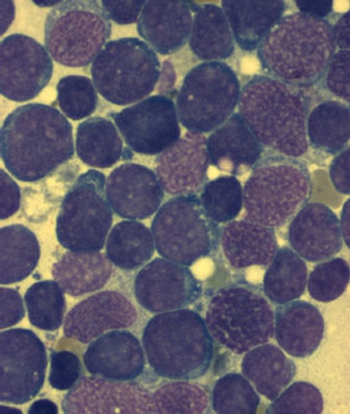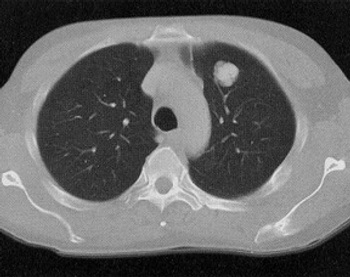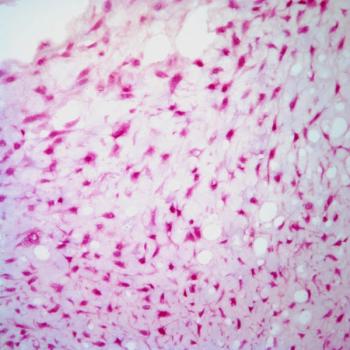
The CRL did not identify any deficiencies related to the manufacturing, efficacy, or safety outlined in the BLA, and no new clinical trials were requested.

Your AI-Trained Oncology Knowledge Connection!


The CRL did not identify any deficiencies related to the manufacturing, efficacy, or safety outlined in the BLA, and no new clinical trials were requested.

Phase 3 EMERALD-1 trial results reveal that no new adverse events were identified with durvalumab plus bevacizumab in patients with unresectable HCC.

Brentuximab vedotin, lenalidomide, and rituximab yielded a median OS of 13.8 months and a median PFS of 4.2 months in the phase 3 ECHELON-3 trial.

Results from the CodeBreaK 300 trial helped lead to the approval of sotorasib/panitumumab in KRAS G12C-mutated CRC.

The FDA has approved acalabrutinib in previously untreated MCL based on results from the phase 3 ECHO trial.

Shwetal Mehta, PhD, describes efforts regarding the development of protein degraders and antibody-drug conjugates in the neuro-oncology field.

Additionally, the Chinese Society of Clinical Oncology and Chinese Anti-Cancer Association guidelines recommend the isatuximab regimen for this population.

The developers expect the product to be available for order in the United States in early February 2025.

Adding lenvatinib/pembrolizumab to TACE elicits a numerical overall survival improvement in the LEAP-012 trial, although additional follow-up is necessary.

Liquid biopsy tests may help determine the extent of activity among patients who receive a novel fourth-generation EGFR inhibitor for brain cancer.

Shwetal Mehta, PhD, highlights novel brain cancer drug development procedures in the clinical lab and pre-clinical arms of the Ivy Brain Tumor Center.

Data from the phase 2b SunRISe-1 study support the NDA for TAR-200 in patients with BCG-unresponsive high-risk non–muscle-invasive bladder cancer with CIS.


The RISE R-5780-01 trial will evaluate the safety and tolerability of R-5780 in patients with melanoma, basal cell carcinoma, or squamous cell carcinoma.

Patients in the ponsegromab group had significantly greater weight gain and physical activity than those in the placebo arm in a phase 2 trial.

The NeXT Personal platform identified minuscule amounts of ctDNA that were found to be predictive of OS and RFS outcomes in patients with lung adenocarcinoma.

Data support the IGG signature, especially its key gene subset, as a potential marker of sustained antitumor activity in breast cancer.

Nearly half of patients with an ICD had a device programming encounter near the end of life, which could present an opportunity to discuss goals of care.

In the IGNYTE-ESO trial, letetresgene autoleucel elicited an ORR of 43%, a median PFS of 7.7 months, and a median DOR of 12.2 months in those with MRCLS.

The use of artificial intelligence led to a higher rate of breast cancer detection as an improvement for mammography screening compared with standard detection methods.

Observing changes in the tumor microenvironment before and after a biopsy may elucidate how kidney cancer cells interact with immune cells.

Investigators of the phase 3 C-POST trial will continue to follow up with patients and assess the key secondary end point of overall survival.

Investigators are assessing treatment with ELC-100 among patients with pancreatic neuroendocrine tumors as part of a phase 1/2 trial.

The FDA accepted a BLA for Dato-DXd based on data from the TROPION-Lung05, TROPION-Lung01, and TROPION-PanTumor01 trials.

The decision follows safety data from the phase 1/2 LOKON001 trial evaluating LOAd703 in advanced pancreatic ductal adenocarcinoma.

Various kidney cancer trials have combined agents such as A2a receptor inhibitors with immunotherapy backbones to potentially improve treatment outcomes.

Paolo Tarantino, MD, and Matteo Lambertini, MD, PhD discuss findings related to CDK4/6 inhibitors and antibody drug conjugates presented at SABCS 2024.

The World Health Organization has approved emiltatug ledadotin as XMT-1660’s international nonproprietary name.

Phase 1b data support the potential benefits of R289 as a treatment for patients with lower-risk myelodysplastic syndrome.

All patients who received HT-001 in the phase 2a CLEER-001 trial showed significant skin toxicity improvements by 6 weeks.